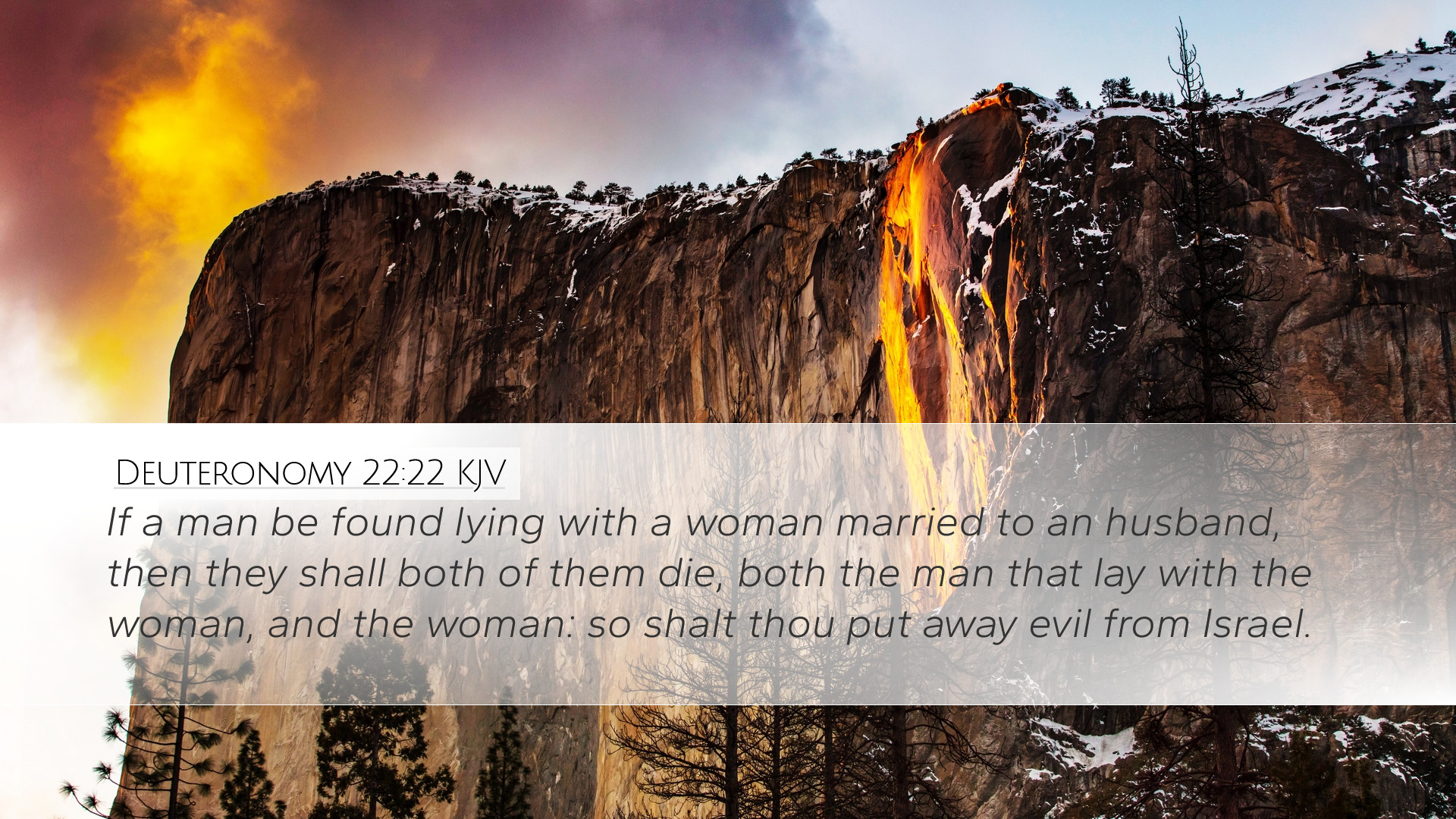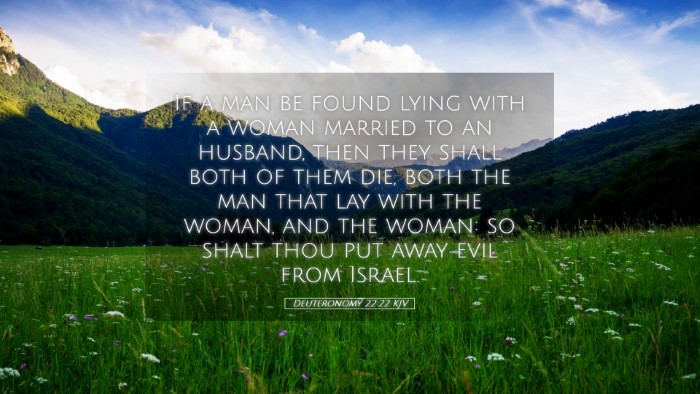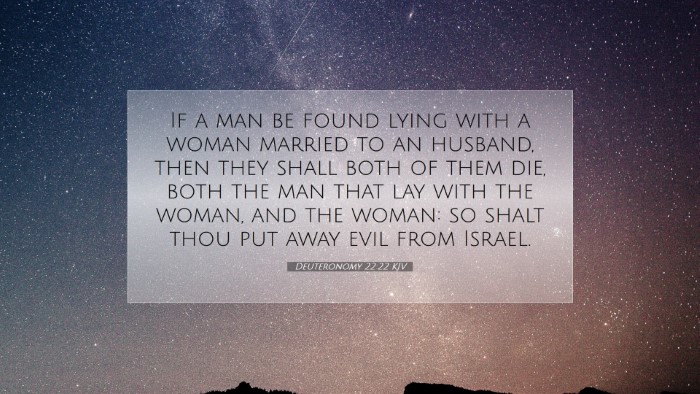Commentary on Deuteronomy 22:22
Deuteronomy 22:22 states: “If a man be found lying with a woman married to a husband, then they shall both of them die, both the man that lay with the woman, and the woman: so shalt thou put away evil from Israel.” This verse addresses the severe consequences of adultery, reflecting the moral and social fabric that God intended for His people. In examining this passage through the lens of public domain commentaries, we can glean deeper insights that are beneficial for pastors, students, theologians, and Bible scholars.
Understanding the Context
The laws given in Deuteronomy are meant to guide the Israelites in their covenant relationship with God and one another. Matthew Henry emphasizes that these laws are rooted in the holiness and righteousness that God requires from His people. He points out that the command to execute the adulterers was not only a deterrent for others but also a critical step towards maintaining the moral integrity of the community.
Moral Implications
Albert Barnes notes that the gravity of the punishment underscores the seriousness of the sin of adultery. Adultery is portrayed as a betrayal not only against one's spouse but also against God, who ordained the covenant of marriage. This is a crucial point, as it emphasizes the relationship between divine law and human conduct.
Legal Framework and Community Integrity
Adam Clarke explains that the stringent measures prescribed for adultery were meant to serve as a deterrent against such acts within the community of Israel. The removal of evil from the camp was of utmost importance, as it preserved the holiness that God demanded. Clarke goes on to elaborate that the phrase “put away evil from Israel” serves as a reminder that community discipline is vital for the health and sustainability of society.
Implications for Today’s Church
- Moral Standards: The church today must grapple with the ethical teachings derived from passages like this one. While the context is historical, the underlying principles regarding fidelity, commitment, and the sanctity of marriage remain relevant.
- Community Accountability: The call for accountability in the church is paramount. Just as ancient Israel was instructed to uphold the community’s moral standards, contemporary Christian communities must foster environments where ethical behavior is encouraged and upheld.
- Understanding God’s Holiness: Pastors and teachers must communicate that God's laws are not simply punitive but are also protective, designed to keep individuals and communities safe from harm.
Interpretative Challenges
Modern readers may wrestle with the harshness of the punishment prescribed in the Old Testament. Scholars often ponder the balance between justice and mercy. While God's righteousness demands punishment for sin, the new covenant, as revealed through Jesus Christ, introduces grace and forgiveness. Understanding this relationship is pivotal for a comprehensive reading of scripture.
Comparison with New Testament Teachings
Henry points out that though the New Testament does not endorse such drastic measures, the essence of the moral law continues to be reaffirmed. Jesus emphasized the sanctity of marriage and warned against the dangers of lust and infidelity in Matthew 5:27-28. This duality in teaching reveals God's desire for His people to maintain moral purity while also striving for a heart of repentance and restoration.
Conclusion
Deuteronomy 22:22 serves not only as a legal directive but also as a theological foundation for understanding God's expectations regarding marriage and fidelity. Insights from commentaries by Matthew Henry, Albert Barnes, and Adam Clarke allow for a multi-faceted perspective on the text, linking historical understanding with contemporary application. Scholars and clergy must continue to explore these nuances to provide meaningful teachings that resonate with modern congregations while upholding the truths of scripture.


